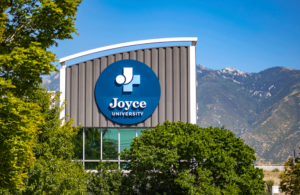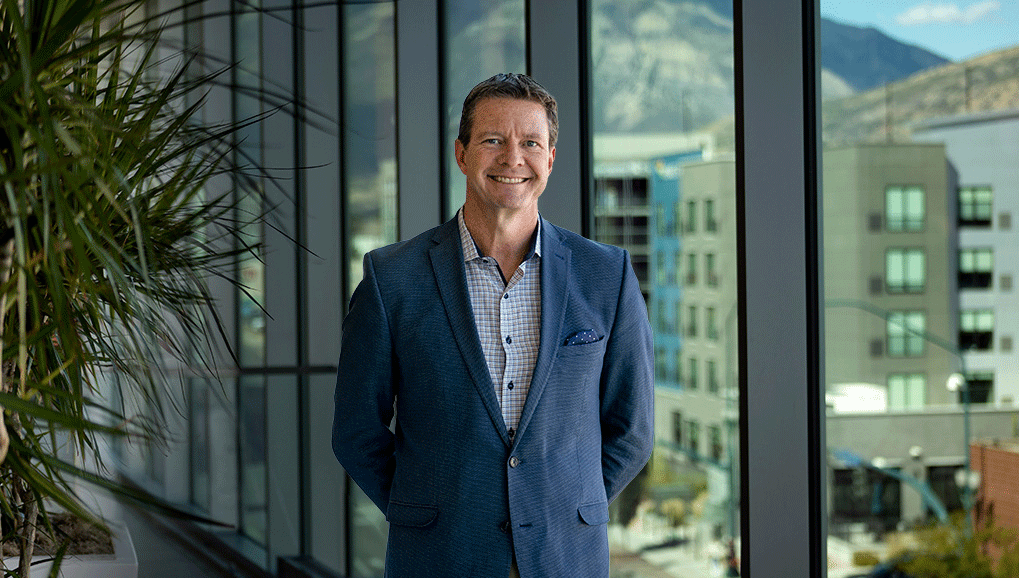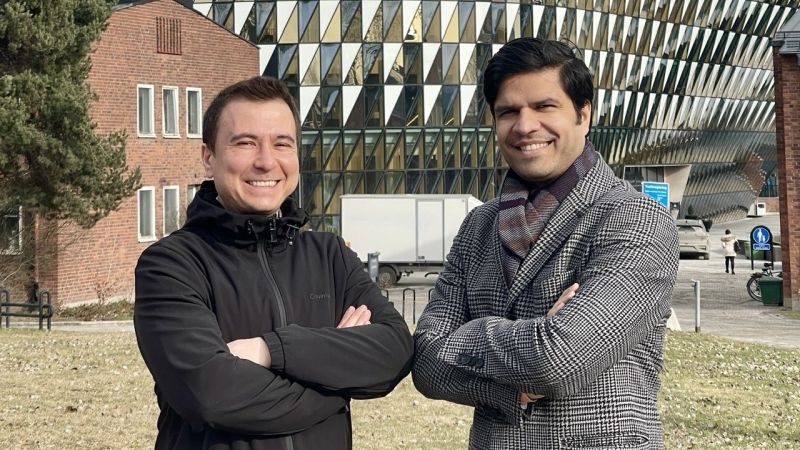Since 1979, Joyce University has been a vibrant learning community, a thriving institution that boasts outstanding students, accomplished alumni, and caring faculty who are each experts in their respective fields.
“As a nearly 50-year-old institution, we’re focused on and committed to raising up a new generation of registered nurses who will make a positive impact on their communities,” says Dr. John Smith-Coppes, President and CEO of Joyce University.
Among nursing universities, Joyce University stands out because of its remarkably people-focused approach.
“We are mission-based and values-led, which means we put a considerable emphasis on our value of excellence,” Smith-Coppes tells us. “As an institution we want people to adopt a mindset that every student that comes to us has the opportunity to become a nurse in the least amount of time, at a reasonable cost, and with a focus on excellence. We focus on three aspects of excellence – student excellence, institutional excellence, and cultural excellence. Our staff and faculty work diligently towards this end, understanding that every student has different needs, healthcare is ever-changing, and our communities need the best out of us and our graduates.”
 Back to School
Back to School
The need for excellent nursing professionals has never been more apparent than during the outbreak of the Covid-19 pandemic. At the same time, it revealed the necessity for an urgent upgrade in the way educational establishments deliver that excellence.
“Certainly, as a healthcare education space, that was radical for our institution,” Smith-Coppes says. “Education is a highly regulated industry, so we had to pivot our education delivery very quickly while maintaining standards. We had to figure out how to deliver content in a truly exceptional way when we could not bring students into a classroom.”
It has meant not only modernizing but transforming the way nursing education is approached.
“As we’ve grown, we’ve learned just how important data is to nearly every decision we make,” explains Smith-Coppes. “In addition to data, we have also had to recognise that it is harder and harder to build an internal technology team while focusing on our core competencies. We recently partnered with Collegis to outsource certain aspects of our IT services work. This is allowing us to elevate the way we access and analyse data to make decisions. That is one of the things I am most excited about.”
One of the watchwords of the post-Covid world has been “remote”: remote working, remote meetings, and remote learning. Joyce University has been no exception, but as Smith-Coppes points out, when it comes to nursing not everything can be taught from a book or a video seminar.
“That has driven our reality and become a key strategic advantage,” Smith-Coppes says. “We were working in the online space, developing online didactic educational delivery even before Covid. We immediately recognised the need for a new way to balance didactic learning, which can be done remotely with skills training and the community clinical experience, which needs to be hands-on. We have been looking at how to balance technology and community partnerships to create safe and competent professionals who can also think critically.”
This has always been a clear priority for Joyce University, which is why it is home to the Joyce Johnson Center of Simulation, offering access to industry-leading medical technology, including high-fidelity robotic patient mannequins, life-like synthetic cadavers, and realistic clinical environments.
The 60,000-square-foot campus looks much more like a hospital than a typical university, housing a sophisticated, immersive simulation centre and A&P lab equipped with the latest hyper-realistic medical technology.
As Smith-Coppes explains, “It has been a challenge, and we have worked hard to create an exceptional simulation experience with the latest technology to provide new ways to minimise student time on campus while maximising immersive experience and reimagining nursing education.”
 Nurturing Talent
Nurturing Talent
Regardless of the extensive and state-of-the-art facilities Joyce University has available, the excellence the institution pursues needs to be built on a foundation of personal expertise.
“I am really proud of the way we take care of our faculty and our staff,” Smith-Coppes says. “Recently we have received a number of top workplace awards from USA Today, Utah Business, and even the Salt Lake Tribune local newspaper.” The university has engaged key strategic partners like NFP to ensure an offering of compelling benefits and best-in-class service standards for their people. “The magic,” Smith-Coppes explained, “is in checking our personal and professional egos at the door and realising there are tremendous partner organizations that can assist us with critical service needs and supply chain management. Their expertise fills our gaps; when we partner strategically, we are then able to elevate our commitment to our people, students, and communities as it allows us to focus our energies on delivery of the quality education.”
Ultimately, Joyce University’s recruitment philosophy is that talent attracts talent. When it has that talent on board, it invests in it and builds on it.
“We focus heavily on recruitment. Our faculty and staff are extremely well-networked, and we lean on those networks to attract the best and brightest nurse educators and administrators,” Smith-Coppes points out. “We have a dynamic People and Culture team, our version of HR, and they invest heavily in continuing education, professional development, and culture. We put our money where our mouth is, and I believe our employees can feel this.”
This approach means that Joyce University has a high retention rate among its staff, faculty, and administration, compared to industry benchmarks. But Smith-Coppes believes in helping Joyce University’s people achieve their career goals whether that keeps them with the university or takes them to leading a faculty somewhere else.
“Focusing on the professional and personal development of our staff and faculty has been a valuable approach for us,” Smith-Coppes says.
It is a methodology that Smith-Coppes believes will take the university towards its goal of being the first name in prelicensure nursing education in the United States.
“That is our goal for the short term, midterm, and long term,” he says. “Right now, we have built the foundation necessary to realise our goal, but we are in a growth and scale phase. We will continue to innovate and be a recognised thought leader, continuing to broaden our footprint across the States. Our footprint will expand, our delivery will improve, and student satisfaction will increase. We will continue to drive solutions for our communities, providing great nurses ready to practise.”
Alongside these goals, Smith-Coppes points to oncoming challenges to the education sector which Joyce University must recognise and successfully navigate.
“We sit in a unique place as a higher education institution focused on a specific field,” he says. “In the US, there is an increasing and appropriate focus on ensuring that students get the value they are paying for and deserve. As a nursing institution, we are in a healthy position, delivering valuable, high-quality programs for our students in a way that more traditional institutions may not be equipped to deliver. Our focus on excellence in education is providing the market with highly skilled nurses at a time when it is in desperate need of qualified, caring, and critically thinking nursing professionals.”







